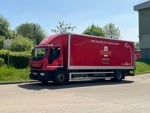Fleet managers looking for alternatives to car-use will welcome the news that the number, frequency and speed of trains on the national network have all increased.
Over 20,000 trains are now running across the rail network each day after longer, faster trains were introduced under a new timetable specified by the Department for Transport.
There are now an extra 690 trains running on the network each day.
Following a £9 billion upgrade of the west coast main line that links London with Birmingham, Manchester, Liverpool and Glasgow, Virgin Trains said it should now take two hours and five minutes to travel from Manchester to London on trains that leave every 20 minutes.
However, Tony Collins, Virgin Rail Group's CEO had a word of caution: "During the first few months as the timetable beds in, passengers' expectations may not always be fulfilled."
Concerns have also been raised about how rail operators cater for business travellers after corporate travel services provider the Hogg Robinson Group (HRG) said rail companies should end the “unfair” anytime ticket pricing structure that penalises corporate travellers.
Under the new rail fare structure, which came into force in May 2008, HRG says many corporate travellers face increased costs and have less flexibility on their travel.
The new anytime ticket replaced standard and first class returns.
Purchasers of these tickets are now restricted to travelling on the outward date printed on the ticket – previously travel was flexible ‘anytime’ within the one month validity of the ticket.
If travel needs change, passengers must apply for a refund, which can take up to 28 days, and in the meantime purchase a replacement ticket for the new date of departure.
“On long distance travel, this can cost hundreds of pounds extra for each journey,” said HRG.
“For example, an anytime first class return ticket from London to Manchester amounts to £360.”
Terry Grainger, director of government contracts at HRG said: “This is a flagrant attempt to increase the cash flow of rail franchise members at the expense of their customers and is simply not acceptable.
“Apart from the questionable use of the word ‘anytime’ in reference to these tickets, this clause penalises the biggest customers of the rail industry, which surely does not make sound business sense.
“Business travellers are regular users of long distance rail services.
"Corporate travellers need flexibility – their travel requirements change frequently, for example if a meeting is postponed – and this new system is costing significant sums in terms of the administration to process returns and the cost of having to purchase multiple tickets for one journey.”















Login to comment
Comments
No comments have been made yet.